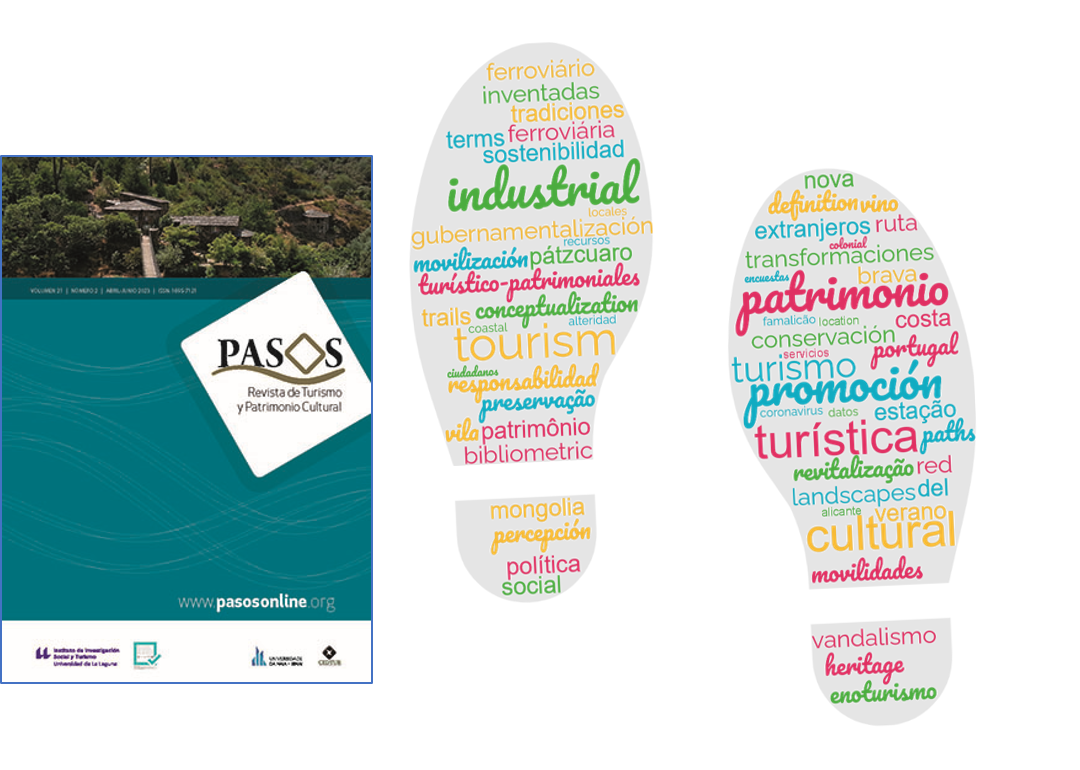The Perceptions of Foreign Nationals Visiting Mongolia: A Tourism Satisfaction Study
DOI: https://doi.org/10.25145/j.pasos.2023.21.027
Keywords:
Mongolia, Tourism, Survey Data, Local Services, Foreign NationalsAbstract
The purpose, of this research project, is to investigate the perception that foreign citizens visiting Mongolia, and who engage in tourism related activities while in the country, have upon the conclusion of their trip. The study investigates issues pertaining to tourism, in particular, as well as the country, in general. The study was conducted in cooperation with a tour operator based in Ulaanbaatar, the nation’s capital. The methodology involved an electronically administered survey to individuals who used the services of the tour operator during the five-year period from 2014-2019. Research results indicate that there are many areas in which the nation excels, but there are also areas that need improvement. The primary contribution of this study is to enable Mongolian tourism authorities to increase the number of foreign tourists, who visit the landlocked nation, in a long-term, sustainable manner.
Downloads
Publication Facts
Reviewer profiles N/A
Author statements
- Academic society
- PASOS. Revista de Turismo y Patrimonio Cultural
- Publisher
- Instituto Universitario de Investigación Social y Turismo. Universidad de La Laguna (España) - Instituto Universitario da Maia ISMAI (Portugal)
References
Amicus Mongolian Travel Company: Amicusmongolia.com.
Besculides, A., Lee, M. E., & McCormick, P. J. (2002). Resident's perceptions of the cultural benefits of tourism. Annals of Tourism Research, 29(2): 303-319.
Buckley, R, Ollenburg, C., and Zhong, L. (2008). Cultural landscape in Mongolian tourism. Annals of Tourism Research 35(1): 47-61.
Bilskie, J.S, & Arnold, M.H. (2002). An examination of the political and economic transition of Mongolia since the collapse of the Soviet Union. Journal of Third World Studies, 19(2): 205-219.
Chen C., & Myagmarsuren, O (2010). Exploring Relationships between Mongolian Destination Brand Equity, Satisfaction and Destination Loyalty. Tourism Economics, 16(4): 981-994.
Cohen, R. (2014). The current status of English education in Mongolia. The Asian EFL Journal, 19(3): 1-29.
Discover Mongolia: discovermongolia.mn.
Eldev-Ochir, E., Luvsanrenchin, G., Buyantsagot, A., & Khurelbaatar, U. (2019). Enabling Sustainable Transportation in Mongolia for 2030: Policy and Institutional Perspective. Journal of the Eastern Asia Society for Transportation Studies, 13: 2521-2546.
en.wikipedia.org.
Gantemur, D. (2020). Stakeholder Collaboration Management for Tourism Development in Mongolia. Proceedings of the Mongolian Academy of Sciences, 60(3): 59-72.
Jargalsaikhan, E. (2018) The Role of Small States in Promoting Security: The Case of Mongolia. Journal for Peace and Nuclear Disarmament, 1(2): 404-435.
Kumatsu, F., Kagawa, Y., Kawabata, T., & Kaneko, Y. (2008). Dietary Habits of Mongolian People and their Influence on Lifestyle Related Diseases and Aging. Current Aging Science, 1(2): 84-100.
Liew, S., Hussin, S., & Abdullah, N. (2021). Attributes of Senior Friendly Tourism Destinations for Current and Future Senior Tourists: An Importance Performance Analysis Approach. SAGE Open: 1-19.
Mayer, B. (2014). The Rights of Mongolia's Internal Migrants under International Law: Climatic, Domestic and Commercial Responsibilities. Journal of East Asia and International Law, 7(1): 197-219.
McIntosh, A., & Prentice, R. (1999). Affirming authenticity: consuming cultural heritage. Annals of Tourism Research, 26(3): 589–612.
Meng, B., & Choi, K. (2016). The role of authenticity in forming slow tourist 'intentions. Tourism Management, 57: 397- 410.
Mongolia Travel: 19x Why You Should Visit Mongolia: onceuponajrny.com.
Selena Travel: selenatravel.com.
Shircliff, J. (2018). Nature and Nomads: Service Approach to Mongolia Tours. Independent Study Project (ISP) Collection, digitalcollections.sit.edu/isp_collection/2857
Shofield,P., & Thompson, K. (2007). Visitor motivation, satisfaction and behavioral intention: the 2005 Naadam Festival. International Journal of Tourism Research, 9(5): 329-344.
The World Bank Group: worldbank.org.
Trips@Asia: tripsatasia.com.
United States Department of State: travel.state.gov.
UNESCO World Heritage Convention: whc.unesco.org.
United Nations Office on Drugs and Crime: unodc.org.
World Data: worlddata.info
Yu, L., & Goulden M. (2006). A comparative analysis of international tourist satisfaction in Mongolia. Tourism Management, 27:1331-1342.
Zatori, A, Smith, M.K. & Puczko, L. (2018). Experience, involvement, memorability and authenticity: The service provider's effect on tourist experience. Tourism Management, 67: 111-126.
Downloads
Published
How to Cite
Issue
Section
License
Copyright (c) 2022 Anand Krishnamoorthy, Patrick Holladay

This work is licensed under a Creative Commons Attribution-NonCommercial-NoDerivatives 4.0 International License.
I confirm that the work is original (of my/our authorship), and that it will not be submitted to other journals or publications until the final resolution of the review process in PASOS, RTPC.
I authorize the publication of my work by PASOS, PSTN of free and open access in any of the formats that I deem appropriate, for an indefinite period of time and as a non-remunerated collaboration.
Likewise, the author(s) understands that the published work may be linked or deposited on any server or included in other publications (republication), provided that the new place and/or new edition references the original publication and acknowledges the authorship and copyright ownership of PASOS RTPC publications.
Authors understand that a plagiarism-self-plagiarism check will be performed, and the article may be removed at any time from the editorial flow.






